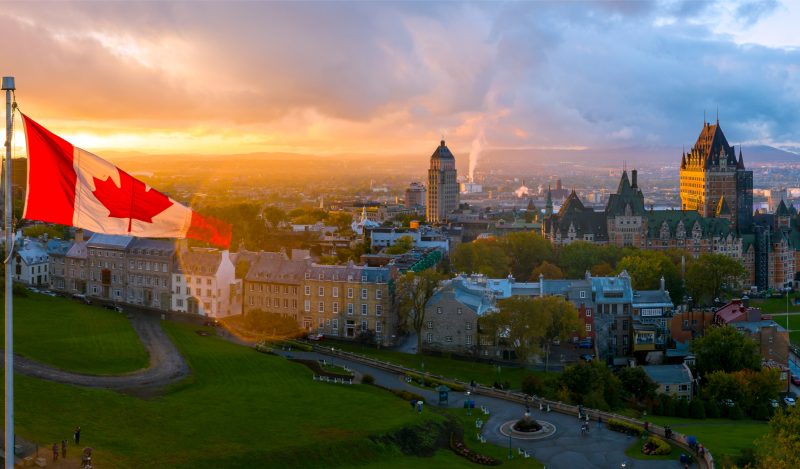The sorry state of Canada’s Covid response is glaring. Ontario is under lockdown. Quebec is under a curfew. Ontario, BC, Alberta and Quebec have started the year with closed schools. At the same time, the United States is open and leading U.S. politicians rebuke the rare remaining calls for lockdowns, insist passionately that schools be open too, and urge citizens to accept the virus as only one risk among the many that we encounter in daily life.
A reason for hope in Canada is that the country’s Covid response still took a massive step forward last year: Zero Covid was finally rejected as the guiding principle. Canadian politicians and experts had to admit that we do not have the technology to stop Covid. It was a tragic mistake to base policy on an unrealistic fantasy.
Our inability to stop Covid holds despite the Covid vaccines’ great success. The vaccines have significantly reduced the likelihood of severe disease and death from an infection with the virus. They are a powerful demonstration of some of the best aspects of humanity—our ingenuity and collaboration.
The elderly, who face more than a thousand times higher risk of death if infected than the young, have benefited the most from the vaccines. It bears repeating that for children without a serious medical condition, the risk of severe Covid has always been ‘so low as to be difficult to quantify,’ as The New York Times put it.
But Covid vaccines’ effectiveness in preventing infections starts to wane quickly within mere months. Thus, even universal vaccination will not prevent the inevitable seasonal Covid surges.
Other technologies—testing, tracing, mask mandates, border closures, vaccine passports, lockdowns and school closures—never stood a chance of preventing Covid waves despite many false promises to the contrary from Canadian experts and politicians. This inability to stop Covid should not have surprised anyone. Pre-pandemic plans did not consider eradication realistic absent a vaccine that prevents infections effectively and durably.
The delay in accepting this reality about Covid was costly. The illusion that we have the means to stop Covid weakened politicians’ incentive to invest in expanding hospital capacity and protect those most vulnerable, such as people in long-term care homes. Lives were lost because of hubris. Canadians have reason to be grateful that the country’s experts and politicians finally gave up on the Zero Covid fantasy.
With the Zero Covid fantasy finally gone, what is the new organizing principle of Canada’s pandemic policies? The unfortunate truth is simple: nothing. There is currently no long-term goal or strategy driving Canada’s pandemic response.
Canada has sleepwalked into a biosecurity state.
In normal liberal democratic societies, elected officials and regulators select policies that mediate among multiple social goals. Policy alternatives come with both costs and benefits, so every decision made by policymakers involves trade-offs among desirable endpoints.
The biosecurity state in which Canada has arrived is markedly different. Covid policies are not the result of a careful, balanced, and public examination of the policies’ merits.
The government and media constantly exhort the people to focus their attention and effort on controlling a single disease. Restrictions, mandates, quarantines, and closures are imposed without regard to the enormous health and economic harms that individuals and society incur. Public health even neglected deadlier diseases like cancer and heart disease to pursue zero-Covid.
Covid policies are invented on the fly and change regularly. Testing, quarantine and isolation rules, for example, often change on short notice with little justification offered to support them. The boot of Covid policies is on citizens’ necks at all times and authorities keep moving it.
Covid policies are also opaque despite their all-encompassing and encroaching nature and the draconian fines and penalties that accompany them. The lack of transparency is understandable; the authorities too know how embarrassing many of the rules are. Yet, the policies come with no practical ways to challenge them.
The ad hoc nature of Covid restrictions has also meant that even the measures’ benefits remain uncertain today, almost two years after the pandemic began. Politicians and public health officials justify their policies with data on Covid cases, hospitalizations, and deaths but neglect the data on the harms of those policies.
Another defining feature of Canada’s biosecurity state is rampant discrimination against small business, the unmasked and the unvaccinated.
Early in the pandemic, the differential effect of the Canadian lockdowns on small and big businesses caused much debate. Now the shocking collapse of small business in Canada barely triggers a notice.
Masks provide a visible demonstration of how dulled our senses have become. While adults socialize in maskless gatherings, public health forces small children to wear masks all day indoors, outdoors, and during sports. Children are forced to bear the heaviest burden, with sharp disruptions in their lives, despite facing by far the smallest risk of harm from Covid itself.
Even supposed beacons of the Enlightenment—universities—also enforce this mask apartheid. For example, at the University of Waterloo, where I teach, faculty can meet each other maskless if they socially distance, but students meeting faculty or attending lectures must wear masks no matter how far apart they are from each other. This was before the university voluntarily shifted to isolated learning once again. It is notable that universities’ treatment of students during Covid is drawing increasing criticism.
In restaurants and events, public health mandates that workers wear masks all day while serving maskless guests. In the eyes of many among Canada’s ruling class, the poor and uneducated are powerless and unclean.
Vaccine passports ingrain the discrimination deeper yet. Canada now excludesunvaccinated young children from sports and school activities, even though many other developed countries have hesitated to approve the vaccines for healthy children. Canadians are so accustomed to ostracizing the unvaccinated that it hardly registers with the public.
The biosecurity state that has emerged in Canada is not the result of a conspiracy or a nefarious plan. Rather, the Canadian biosecurity state arose without thought or debate in a vacuum of long-term goals and careful planning. It is the result of governments—politicians and officials with the very best intentions—winging it rather than relying on long-established pandemic plans.
Canadians may shudder at the idea that their country is a biosecurity state. But the term is descriptive rather than disparaging. The most ardent proponents of Canada’s pandemic course should be the most eager to call their country a biosecurity state. They have argued relentlessly for a singular focus on Covid and that the virus must be ‘fought’ irrespective of the massive costs that Covid policies impose on individuals and society.
Canada will not be a biosecurity state forever.
The Covid policies we see today in Canada are the product of pretending for two years that Covid can be stopped, that no trade-offs exist when it comes to Covid, and shunning debate on even the most obvious trade-offs and alternative Covid policies. The lack of attention to the human and economic costs of Canada’s Covid response has been appalling.
But the diminished nature of life in Canada and childhood in particular has become impossible for anyone to ignore, and more and more people are now questioning Canada’s Covid response and the lack of an endgame. This bodes well for the future. Vigorous debate on Covid policies and the merits of Canada’s emergence as a biosecurity state will help the country prosper regardless of how long it decides to continue on this path.
Republished from the author’s blog
Join the conversation:


Published under a Creative Commons Attribution 4.0 International License
For reprints, please set the canonical link back to the original Brownstone Institute Article and Author.









